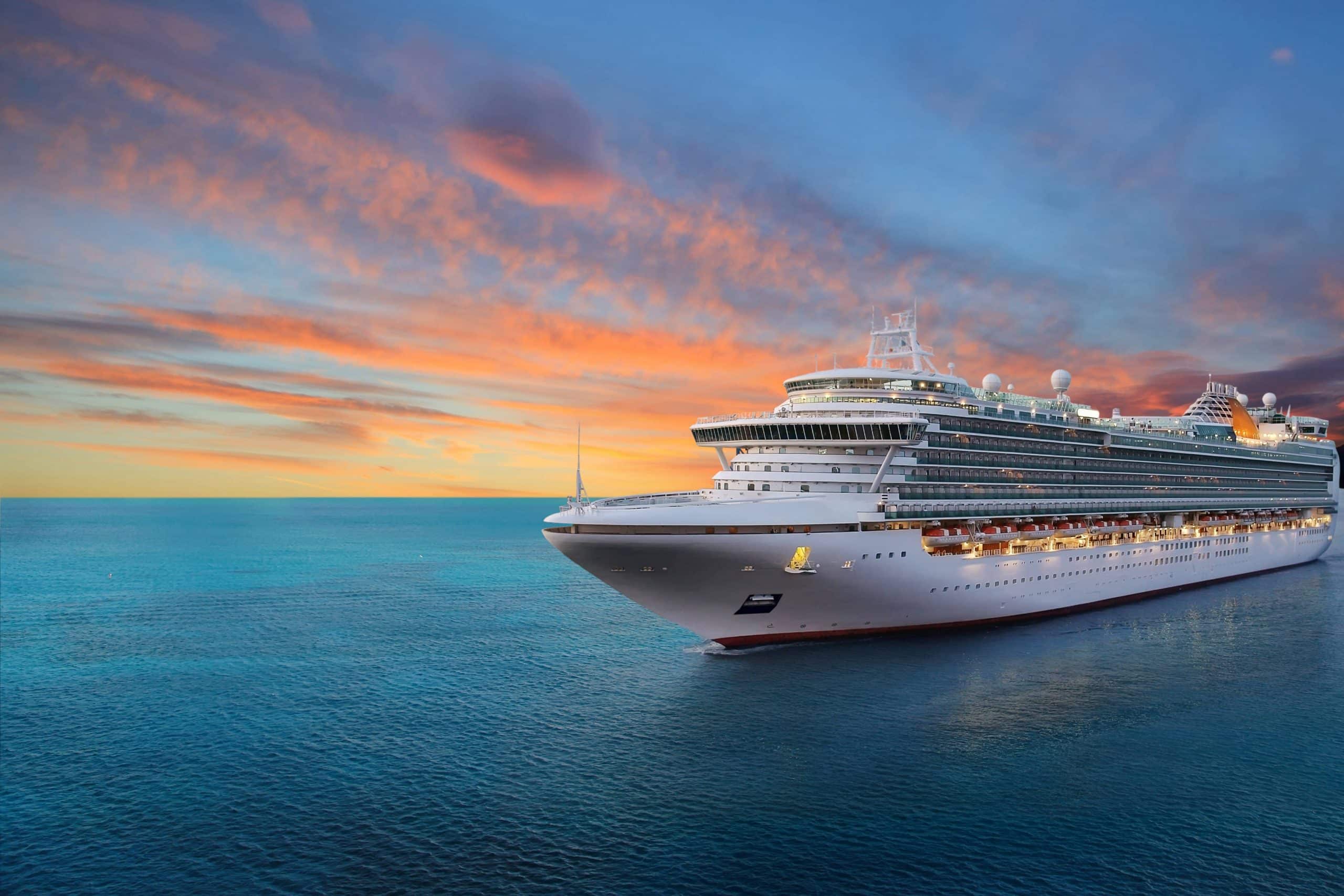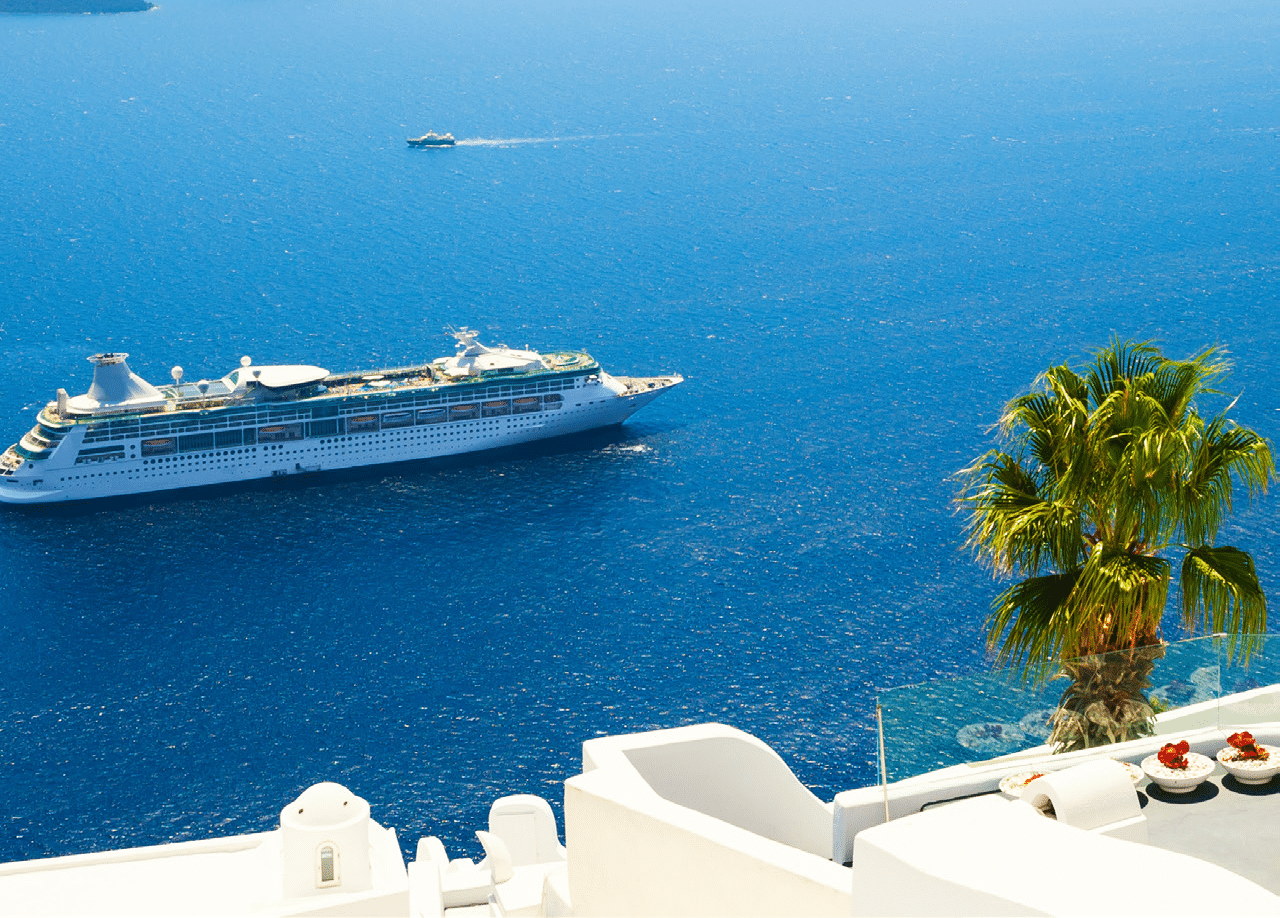Cruising isn’t just a mode of travel; it’s an experience passengers return to again and again. The industry’s momentum speaks for itself: nearly 42 million passengers are expected to cruise by 2028, up from 35 million in 2024. Younger travelers are increasingly drawn to the ease and excitement of cruising, joining long-time loyalists who already consider it their favorite way to explore.
And once travelers start cruising, they tend to stay anchored to the experience. One in four cruisers now sets sail twice or more each year, a clear sign that cruising isn’t just convenient, it’s captivating. It satisfies something deeper, from the balance of freedom and familiarity to discovery without disruptions. That’s the psychology of cruising and why travelers keep coming back to the sea.
The Rising Tide of Cruise Popularity
Cruising has become one of the most enduring travel traditions. According to an arrivia survey of 4,541 U.S. adults, including a subgroup of 1,058 “active cruisers,” Millennials and higher-income households show the strongest intent to sail in the coming years, while Boomers remain the most seasoned travelers, with one in four having taken three or more cruises in their lifetime.
That level of repeat travel speaks volumes. More than half of past cruisers (52%, to be exact) have set sail within the last two years, and another 37% plan to do so again within the next 24 months. Cruising has shifted from an occasional vacation to an experience travelers of all ages build into their lives, blending cross-border exploration with the comfort of on-board familiarity.
And for many, the value only strengthens the appeal. In fact, 40% of respondents said they’d swap a land vacation for a cruise package if the price and perks aligned. The takeaway is clear: cruising isn’t just another way to travel, it’s a ritual of return. Between booking excursions and boarding their vessel, cruises provide a fuss-free break from reality that keeps travelers coming back to the sea.
Why Do Travelers Become Loyal Cruisers?
What makes travelers return to cruises? It’s the effortless blend of ease, indulgence, and connection that ships provide. Cruises remove the stress of planning while offering all-inclusive comfort, moments of on-board luxury, and experiences that bring generations together. Behind every return voyage is the pull of something deeper, from emotional connections to the psychology of escape.
The Comfort of Ease and the All-Inclusive Mindset
For many travelers, simplicity is part of the allure. According to arrivia’s “View from the Cabin” survey, 20% of passengers cite all-inclusive pricing as a top motivator for booking a cruise vacation, followed by the ability to visit multiple destinations (17%) and balance sightseeing with relaxation (16%). Predictability ultimately lowers decision fatigue and gives travelers a sense of control.
That appreciation rises with income, too — from 15% among households earning less than $50,000 to 22% for those earning above $100,000. Browsing and booking meals, entertainment, and excursions all in one place creates a seamless rhythm travelers can’t find elsewhere. It’s no wonder 26% of them have booked outside their usual brand loyalty just to bundle their travel options into one experience.

The Allure of On-Board Indulgence and Ship Luxury
While all-inclusive pricing is a major factor in why so many travelers return to the sea, cruising also offers a taste of something indulgent. Among avid cruisers, 51% spend more for larger cabins or added amenities, and 35% would leave their preferred brand for a better itinerary or enhanced onboard experience. Another 27% would switch lines entirely for a more luxurious ship.
It’s a reflection of how cruising satisfies the desire to be cared for: a curated escape from everyday decision-making. Speaking of an escape, 55% of travelers say access to a private island factors into their booking decision, with one in four switching cruise lines for that exclusive stop. The promise of luxury and premier, line-specific destinations fuels cruise loyalty long after travelers disembark.
The Multi-Generational and Familial Connection
Aside from luxury-seekers, cruising connects multiple generations in ways few vacations can. Half of active cruisers travel with their partner or minor children, but many include adult children (15%), friends (12%), and parents (6%) in their travel plans. Nearly one in four Boomers now cruise with their adult children, typically aged 20 to 40, while 20% of Gen Z sail alongside their parents.
Compared to other modes of travel, like piling children or senior parents into a rental car or airplane, cruises are a trouble-free form of family bonding. With everything in reach — dining, activities, and relaxation — families can focus on connection, not coordination. The ship becomes a floating memory-maker where shared experiences strengthen bonds that outlast the voyage.
The Appeal of Shorter Voyages and Spontaneous Vacations
While many imagine lengthy voyages on the open sea, not every cruise is a two-week journey. Shorter itineraries, once a niche offering, are now mainstream. Three- and four-day sailings from ports like Miami or Long Beach have surged in popularity as travelers seek flexible vacations. These shorter voyages serve as “on-ramps” for first-timers and younger travelers to get their feet wet.
According to arrivia data, interest in two- to four-day cruises is strongest among Millennials, Gen Z, and lower-income travelers who value affordability and time flexibility. These shorter trips deliver quick rewards, acting as a fun getaway that still leaves room in the budget for a future trip. It’s the travel equivalent of a deep breath, and for many, that’s exactly what keeps them coming back.
Cruising and the Psychology of Belonging
When it comes to avid cruisers, loyalty starts long before booking their first (or third) voyage. Travelers don’t just collect points, they collect moments — the kind that make them truly want to set sail. Cruises offer both structure and spontaneity, creating a rhythm travelers find comforting. It’s the same ship, the same smiles, and the same sense of ease that feels like home at sea.
That sense of belonging is powerful. For many, cruising blends freedom with familiarity, offering shared routines, friendly faces, and the nostalgia of revisiting favorite destinations. Even more, 11% of travelers say they cruise simply because they love being on the water, while another 11% appreciate it as a safer way to travel and a mode that’s well adapted to their age/physical ability.
For travel providers, that emotional connection also translates into brand loyalty. After all, 21% of travelers booked their most recent cruise through a loyalty program, a clear sign they value reward experiences that align with their love of the sea. As a travel rewards provider and white-label booking platform, arrivia helps brands nurture that sense of belonging across every voyage.
Explore a Sea of Possibilities with arrivia
Cruises don’t just transport travelers from port to port. They stay with them long after the voyage ends, in the quiet comfort of routine, the memories made with loved ones, and the anticipation of the next adventure. Each experience builds on the last, deepening passengers’ connection to the water and to the brands that make it possible. It’s travel that becomes personal, not just habitual.
With more than 30,000 cruise itineraries across every major category, arrivia helps travelers turn that personal connection into a possibility. Our white-label travel loyalty technology gives avid cruisers access to the rewards and experiences they truly desire — and a booking process built for ease, value, and discovery. It’s how arrivia keeps the spirit of travel alive, one voyage at a time.
Want to expand your loyalty rewards to the sea? Explore what arrivia has to offer.
Frequently Asked Questions
Why do travelers return to cruising so often?
Cruising offers an unmatched mix of ease, comfort, and emotional connection. Many travelers enjoy the predictability, all-inclusive value, and sense of belonging that turns first-time voyages into long-term travel habits.
Is cruising more popular with any specific age group?
Yes. Boomers remain the most seasoned cruisers, but interest is rising fast among Millennials and Gen Z, especially for shorter, more flexible cruise itineraries that fit their budgets and lifestyles.
What makes cruises ideal for families?
Cruises are built for connection. With onboard dining, entertainment, and activities for all ages in one place, families can relax and spend quality time together without the stress of coordinating every detail.
How important is luxury in cruise decision-making?
Very. Over half of frequent cruisers spend more for upgraded cabins or amenities, and many switch cruise lines for access to exclusive experiences like private islands or premium ships.
What role does brand loyalty play in cruise bookings?
It’s significant. According to arrivia data, 21% of travelers booked their most recent cruise through a loyalty program, showing how personalized rewards deepen engagement and influence future bookings.








